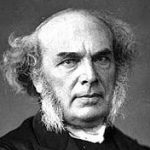Lesson Focus: This lesson will help you make the connection between Jesus’ unique power and authority and the unique life He calls you to live.
Know the Unique Son of God: Mark 1:1-3.
[1] The beginning of the gospel of Jesus Christ, the Son of God. [2] As it is written in Isaiah the prophet, "Behold, I send my messenger before your face, who will prepare your way, [3] the voice of one crying in the wilderness: ‘Prepare the way of the Lord, make his paths straight,’"
[1] The opening words of Mark’s Gospel emphasize that the good news concerning Jesus the Christ was inseparably bound up with the preparation provided by John the Baptist, whose ministry served to summon Jesus to the wilderness. Mark’s intention is grasped by reading verses 1-4 as a single sentence: the good news concerns Jesus the Christ, but it begins with the wilderness prophet John. What Mark celebrates is not merely the prophetic activity of John the Baptist but the redemptive activity of God in providing salvation for men. The prophetic testimony cited in verses 2-3 finds its fulfillment both in the ministry of John and in the coming of Jesus into the wilderness. The emphasis thus falls upon the unity of God’s action in its historical unfolding; the whole complex of events from the appearance of John to the beginning of Jesus’ ministry is a single movement, the beginning of the gospel. Mark announces Jesus’ coming as an event that brings about a radically new state of affairs for mankind. The explicit reference to Isaiah indicates that the gospel receives its proper interpretation only in the light of the coming salvation promised in the prophetic word. Especially in Isaiah the Hebrew terms signifying ‘good news’ concern the announcement of future salvation, or of the time of salvation. In verse 1 gospel is the technical term for Christian preaching, and the words which qualify it should be understood objectively, the good news concerning Jesus the Messiah, the Son of God. Mark’s Gospel as a whole gives an interpretive account of the historical appearance of Jesus; it is concerned with His teaching far less than the other Gospels. Verse 1 indicates that Mark’s primary concern is to delineate the historical content of the early Christian message of salvation. It is evident that Mark’s Gospel invites the reader to consider every aspect of the Gospel from a distinctly Christological perspective. The primary reference in this verse is to the ministry of John and the fulfillment of the hope of
[2-3] The Old Testament quotation comes from Malachi 3:1 and Isaiah 40:3. Both references are related to the wilderness tradition. They function to draw attention to three factors which are significant to Mark in his prologue: the herald, the Lord and the wilderness. In the verses which immediately follow, the significance of each of these elements is emphasized by Mark, who sees in the coming of John and Jesus to the wilderness the fulfillment of the promised salvation of which the prophet Isaiah had spoken. In stressing the element of fulfillment at the beginning of his account Mark conforms the narrative to the apostolic preaching, in which the theme of fulfillment was of strategic importance.
Know the Power of Jesus: Mark 1:7-13.
[7] And he preached, saying, "After me comes he who is mightier than I, the strap of whose sandals I am not worthy to stoop down and untie. [8] I have baptized you with water, but he will baptize you with the Holy Spirit." [9] In those days Jesus came from Nazareth of Galilee and was baptized by John in the Jordan. [10] And when he came up out of the water, immediately he saw the heavens opening and the Spirit descending on him like a dove. [11] And a voice came from heaven, "You are my beloved Son; with you I am well pleased." [12] The Spirit immediately drove him out into the wilderness. [13] And he was in the wilderness forty days, being tempted by Satan. And he was with the wild animals, and the angels were ministering to him. [ESV]
[7-8] John’s message is telescoped to focus upon a single theme, the proclamation of a person still to come who will baptize the people with the Holy Spirit. In referring to this new Baptizer, whose dignity overshadowed his own, John avoided traditional messianic terms. The announcement is framed in accordance with
[9] The Lord is now introduced directly: Jesus comes from
[10-11] Many had come to the Jordan to be baptized by John, but only in the instance of Jesus, in whom true submission to God was perfectly embodied, was the "coming up" from the water answered by a "coming down" from above. The cosmic significance of this event is indicated by the vision of the rending of the heavens, the descent of the Spirit and the testimony of the voice from heaven. The pattern had been established already in the first exodus that God could not come down until the people had been consecrated [Ex. 19:10f]. For this reason Jesus expressed a vicarious confession of sin on behalf of the many. He walked into the waters of baptism in obedience to the Father’s will. He had consecrated Himself in faith, even as every other man must do. But in this instance God came down, and there was striking attestation that sonship has been re-established through the one true Israelite whose repentance was perfect. The divine response to Jesus’ acknowledgment of the judgment of God was the descent of the Spirit as a dove and the voice from heaven. Both of these elements are to be associated with the new exodus in the wilderness prophesied by Isaiah [32:15; 44:3; 63:10-14]. This prophecy is fulfilled in the descent of the Spirit upon Jesus. It was in the wilderness that
[12-13] The account of the baptism is followed by that of Jesus’ trial in the wilderness. The intimate connection between the two events is established by the phrase immediately. Jesus’ expulsion into the desert is the necessary consequence of His baptism; it is the same Spirit who descended upon Jesus at His baptism who now forces Him to penetrate more deeply into the wilderness. The most striking characteristic of this temptation account is its brevity. These brief verses describe what it means for Jesus to heed John’s summons to the wilderness. The forty days signifies that the aspect of humiliation in Jesus’ mission is not yet terminated in spite of the declaration that He is the beloved Son. Jesus must remain submissive: the Spirit does not allow Him to abandon the wilderness after His baptism. The function of verse 13 is to clarify the consequences of this submission: confrontation by Satan and temptation, exposure to the wild beasts, and reception of the ministry of the angels. Jesus stays in the wilderness for forty days, a fixed time of symbolic significance. The reference to the forty days recalls Moses’ stay on Mount Sinai and Elijah’s wandering through the wilderness to
Know Jesus’ Authority: Mark 1:21-28.
[21] And they went into Capernaum, and immediately on the Sabbath he entered the synagogue and was teaching. [22] And they were astonished at his teaching, for he taught them as one who had authority, and not as the scribes. [23] And immediately there was in their synagogue a man with an unclean spirit. And he cried out, [24] "What have you to do with us, Jesus of Nazareth? Have you come to destroy us? I know who you are–the Holy One of God."
[25] But Jesus rebuked him, saying, "Be silent, and come out of him!" [26] And the unclean spirit, convulsing him and crying out with a loud voice, came out of him. [27] And they were all amazed, so that they questioned among themselves, saying, "What is this? A new teaching with authority! He commands even the unclean spirits, and they obey him." [28] And at once his fame spread everywhere throughout all the surrounding region of Galilee. [ESV]
[21-22] According to custom, Jesus enters the synagogue on the Sabbath and begins to teach. The only official in charge of a synagogue was the ruler of the synagogue, a position that included the responsibilities of librarian, worship committee, custodian, and perhaps schoolteacher. The ruler of the synagogue did not preach or expound the Torah, however, which meant that Sabbath teaching and exposition fell to the laity, and on this occasion to Jesus. The teaching the congregation hears from Jesus is unlike anything it has heard before. Reactions of those in attendance range from astonishment to incredulity. The word that Mark uses of Jesus’ authority is a preeminent term in his presentation of Jesus. In the Old Testament the word is used of supernatural powers and authorities, especially of God and His works, representatives, and emissaries. In Mark the term occurs nine times, six with reference to Jesus, and three with reference to authority conferred by Jesus on the apostles. Mark’s use of this defining term at the outset of Jesus’ public ministry establishes His authority over the highest authorities in both the temporal realm, as represented by the scribes, and the supernatural authorities, as represented by the demon in the following verses.
[23-28] For Jesus’ first public appearance in ministry Mark chooses an encounter in the synagogue of Capernaum in which the kingdom of God goes head-to-head with the unseen though ultimate opponent, the power structure of evil. The acid test of Jesus’ authority comes in verse 23. Even more impressive than Jesus’ authority as a teacher is His supremacy in the supernatural realm. Beginning with this story (see also 3:7-12; 5:1-20), the exorcisms in Mark depict the gripping conflict between the kingdom of God and the dominion of Satan, between the one anointed with God’s Spirit and those held captive by unclean spirits. The inbreaking of God’s kingdom in Jesus first begins, according to Mark, not in the human arena but in the cosmic arena, in order to bind the strong man [3:27] who exercises power over the natural order. Indeed, as supernatural powers themselves the demons recognize the mission and authority of Jesus before humanity does [1:24; 3:11; 5:7]. The demons become the second party in Mark’s presentation of Jesus, following the voice from heaven at the baptism [1:11], to announce Jesus’ divine Sonship. Unclean indicates that which is polluted or contaminated, which in a Jewish perspective is tantamount to ungodly. The exorcism ends with the amazement of all present. Not only are unclean spirits expelled, but broken people are restored to health and wholeness and to the possibility of restoration with their Creator, in whose image they are made. The authority of Jesus is astonishing not as a display of Jesus’ grandeur but as a power of redemption for captives.
Questions for Discussion:
1. What is the significance of the "wilderness" in Mark 1:1-13? How does this relate to Old Testament prophecy concerning God’s provision for salvation of His people?
2. Why was it necessary for Jesus to submit to John’s baptism? What does Mark teach us by placing verses 8 and 9 together?
3. What do the rending of the heavens, the descent of the Spirit, and the testimony of the voice from heaven teach us concerning Jesus getting baptized? Why did the Spirit immediately drive Jesus out further into the wilderness after His baptism?
4. What does Mark want us to understand about Jesus in verses 1:21-28? What is unique about Jesus’ authority?
References:
The Gospel According to Mark, James Edwards, Eerdmans.
The Gospel According to Mark,

















